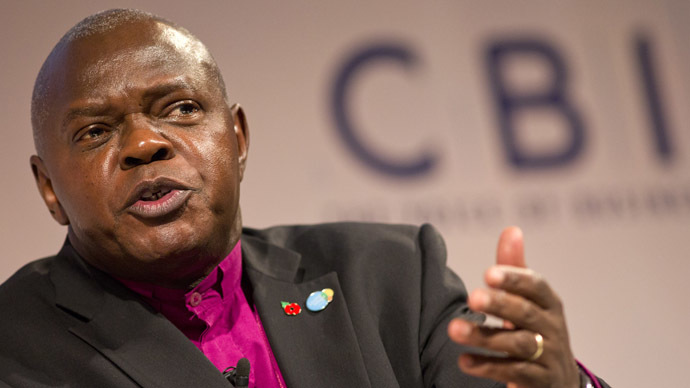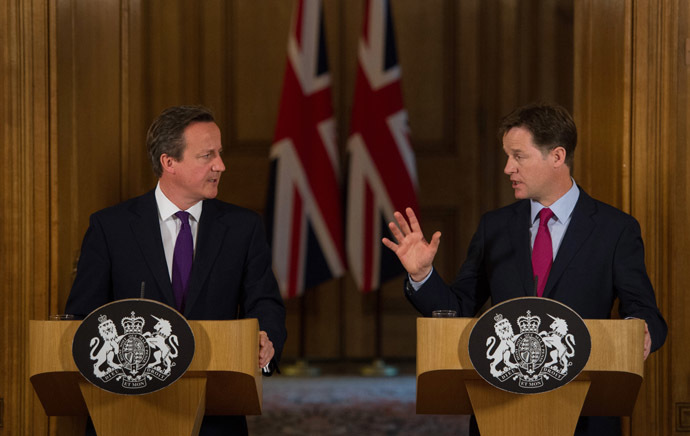‘Everyone for themselves’: Church of England attacks Cameron govt for ‘evil’ inequality

The two most senior archbishops in the Church of England have openly condemned the UK government’s economic policies, claiming the nation’s poor are being “left behind” because politicians are obsessed with “Middle England.”
In their unabashed criticism, which can be found in a new volume of essays to be published next week, the Archbishops of York and Canterbury warn the public that political leaders are peddling the dangerous “lie” that economic growth will solve Britain’s social problems.
The archbishops, who have edited the essays, strongly and unequivocally condemn the “rampant consumerism and individualism” which has “dominated” the UK since the 1980s reign of Conservative PM Margaret Thatcher.
The book includes contributions from John Sentamu, the Archbishop of York, Justin Welby, the Archbishop of Canterbury and former Labour Cabinet Minister Lord Adonis, amongst others.
In particular, the senior religious figures questioned the validity of the Conservatives’ slogan, “We’re all in this together,” claiming Britain’s poorest are plagued by “evil” inequality.
They also claim that Christian values of selflessness and charity have been replaced by a capitalist mantra: “Every person for themselves.” The archbishops warn that while some areas of the country, like London, are prospering, much of the rest is “trapped inside apparently inevitable decline.”

The attack comes at a particularly sensitive time for the Conservative-led coalition government, just ahead of the May 2015 general election. Historically, the Church of England has been known as “the Tory party at prayer,” but in recent years some leading church figures have taken a more radical position on government-imposed austerity than the mainstream political parties.
The collection of essays, called “On Rock or Sand,” has been released as a deliberate political “intervention” during the beginning of the parties’ election campaigns.
It contains a gloomy report on Britain’s economic recovery from Archbishop of Canterbury Welby, who claims “entire towns and regions” have not benefited from the country’s economic growth.
Welby further says economic regrowth is particularly difficult for the neglected areas.
“Our economy appears to be, in one sense, a tale of two cities – one being a growing and constantly improving London (and the South East generally), and the other being most, but not all, other cities, alike in that they are each trapped in apparently inevitable decline,” he writes.
“Already in decline, the road towards recovery and growth is made even more difficult. There are now fewer readily available government resources able to support economic development in these regions; and also, since the 1980s, the banking system has become more and more London-concentrated and consequently out of touch with local needs.”
Sentamu further invites readers to examine the 1985 text “Faith in the City,” which was criticized by the Thatcher’s government at the time as “Marxist” political literature. Since that attack, the Church has “lost its nerve” and no longer so openly condemns government policy, Sentamu said.
The publication is aimed to knock the wind out of the Conservatives initial election campaigning, and is not expected to be well received in government circles.
In 2011, the CofE and the Conservatives clashed when then-Archbishop of Canterbury Rowan Williams accused the government of forcing through “radical policies for which no one voted.”
The Work and Pensions Secretary Iain Duncan Smith called Williams’ comments “unbalanced and unfair.”












